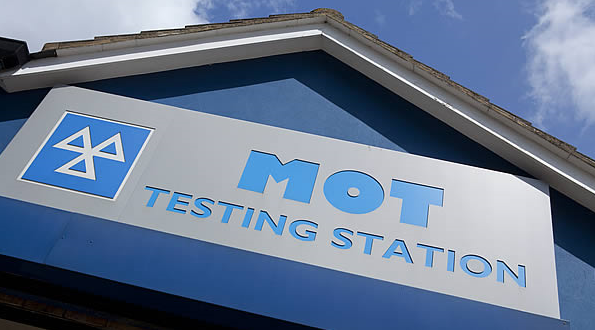The National Franchised Dealers Association (NFDA) and the Independent Garage Association (IGA) strongly oppose today’s report from The Adam Smith Institute recommending the abolishment of the MoT test.
The Adam Smith Institute, the think tank and lobbying group, is urging Government to scrap the MoT as it believes motorists are “wasting £250 million a year on rip-off-checks and unnecessary repairs”.
The Institute described the MoT test as “outdated and a classic case of poor policy” and that it hasn't been rigourously evaluated for over 20 years.
In a report on the MoT by Institute economist Alex Hoagland, he said: “The idea of vehicle safety inspections is an outdated one stemming from widespread use of unsafe vehicles in the 1950s.
“Over the years, reforms have added burdens to drivers rather than removed them due to an unsubstantiated assumption that inspections increase safety. However, this assumption has proven to be inaccurate.”
It argues that as vehicle technology improves, an annual safety inspection is rendered “more and more useless”.
The Institute argues that if the MoT is not abolished it should be “overhauled substantially”. Suggestions include reducing the MoT test to once every three years, or applying it only to vehicles which are at least five years old.
Read more at: https://inews.co.uk/essentials/lifestyle/cars/car-news/a-think-tank-has-called-for-the-government-to-scrap-the-mot/
Sue Robinson, NFDA Director, said that without an MoT, customers would be likely to incur additional expenses due to the damage caused by unresolved basic wear and tear issues.
Robinson said: “Issues affecting items including light bulbs, brake pads, tyres, wiper blades, steering and emissions need to be constantly checked and can easily escalate into more severe problems.
“In January, the Government acknowledged that ‘data relating to accidents involving mechanical failure would improve testing at year three’ instead of four and we believe abolishing the MoT test could have potentially devastating road safety implications.”
Stuart James, IGA director, said the fact the fact average repairs for the MoT test cost £143 shows there are a large number of cars that are unroadworthy.
James said: “Every fatality is one too many, and for an average price of £33 for the MoT test, the peace of mind that this brings can only be perceived as outstanding value for money.”
Road safety and breakdown organisation GEM Motoring Assist said any move to do away with the MoT test would lead to a rise in deaths and serious injuries on the roads of the UK.
Neil Worth, GEM road safety officer, said: “Removing the requirement for drivers to ensure their vehicles are checked annually would be a massive backward step for road safety.
“This would lead to a significant rise in vehicles on our roads with all kinds of dangerous defects that would only become apparent after a collision.”
Worth acknowledged that the annual MoT test should not be relied on as a test for maintenance and regular servicing, even though it is not a legal requirement, is vital for vehicle safety.
In the conclusion of the report Hoagland said: "While there remains strong popular support for the MoT test from both policymakers and private citizens, nearly all recent evidence suggests that the test is ineffective at influencing road safety.
"As vehicle technology improves to make cars safer to drive, Government policy should bring itself into the 21st century by striving to make drivers—not vehicles—safer and more reliable.
"Increased focus on distracted and unsafe driving practices will surely be more effective at reducing fatalities than any vehicular inspection program. By continuing inspection programs like the MoT, the UK places an overly burdensome weight on its drivers to care for their vehicles while overlooking the more serious drivers of roadway fatalities and injuries: the drivers themselves.
"Even if the program cannot be abolished completely, the MoT program ought to— at a minimum—be seriously overhauled to be less restrictive and wasteful, and to focus on driver behavior rather than vehicle status."


















Pete Boyes - 28/07/2018 08:51
Typical comments from people with no real knowledge of what can wear or break on a modern vehicle. We fail at least 1 car a week with a broken spring, bald or blebbed tyre. High emissions from little use diesels, bulbs out, the list goes on. These people have obviously never studied DVLA statistics or they would realise the high mileage 3 year old cars are often the worst offenders. Get a life Adam Smith.